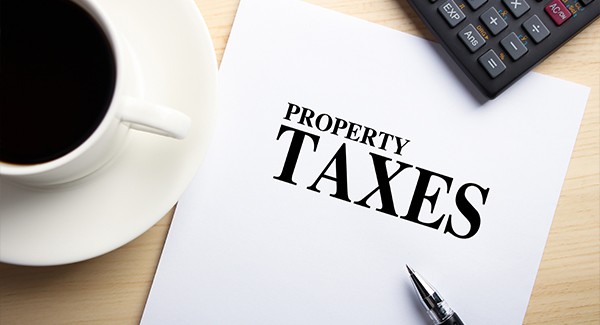As an Illinois property owner, it’s unlikely you have remained unaffected by the current state of property taxes. However, unlike other costs involved with owning property (like mortgage payments or utility bills), tax assessments can and should be appealed.
While many counties have streamlined the ability to file an appeal, winning an appeal is a whole other matter. Successful appeals require concise and compelling evidence. Moreover, filing deadlines can pass without notice to homeowners preventing them from even contesting their assessment.
Association assessment appeals require more careful analysis and preparation. Whether you live in a condominium, homeowner (HOA), or townhome community association, below are seven frequently asked questions with answers.
1. How are property values determined?
Property taxes are determined on an ad valorem basis meaning that the cost of the tax bill is based on the property’s value.
The county assessor’s office compares each property with similar properties in the area to determine their respective values. For instance, the Cook County Assessor’s Office is responsible for placing a value on about 1.8 million parcels.
2. How do property tax appeals work?
When you file an appeal, you are not actually challenging the tax bill – you are contesting the value of your house or building as determined by the county assessor.
The appeal decision is reached by county officials. There are also varying levels of appeals (Board of Review, Property Tax Appeal Board, Circuit Court) that can impact the appeal decision timeframe.
The appeal process can take anywhere between 6-12 months, depending on when the appeal is received. Deadlines, complaint forms, evidence, and rules of practice can vary by county.
3. What are some reasons to challenge your assessment?
- The assessor’s market value is higher than actual market value
- Results of an assessment/sales ratio study show that the assessed value is at a higher percentage of market value for your property than the prevailing township or county median level
- The primary assessment of the property is based on inaccurate information, such as an incorrect measurement of a lot or building
- The assessment is higher than those of similar neighboring properties
4. How do property tax appeals work for community associations?
A group appeal is where all (or many) of an association’s units file a single property tax appeal. Illinois law allows a condominium association’s board members to file a single appeal on behalf all the Association’s unit owners.
To file as a group in a townhome or homeowners association, individual owners must formally opt in, granting the Board the authority to include their units in one association group appeal.
5. Why should associations appeal as a group?
- First and foremost, County Assessors prefer one appeal, over dozens, or even hundreds, of owners filing separately. It’s administratively easier to process and the favored method.
- Second, the County Assessors place a single value on the entire building or development and reviewing that value is facilitated by an appeal including all units.
- Third, the County Assessor has a duty to uniformly assess all units within an association. The group appeal enables the County Assessor to meet this obligation.
6. Does the community association have to hire an attorney?
To file a group appeal, yes. Associations are not considered “persons” under Illinois law and thus need a licensed attorney to represent them in any legal proceeding. This includes property tax assessment appeals. Further, the Board of Review, PTAB and Court require Associations to be represented by licensed attorneys in an assessment appeal before their offices.
7. What’s the difference between a tax attorney and a tax consultant?
Unfortunately, hiring a “tax consultant” or having one of the board members file an appeal on behalf of the entire association would result in the appeal being voided and might cost the association the ability to re-file with legal counsel if the appeal deadline has expired.
Condominium, homeowner, and townhome community associations need skilled legal counsel to steer them through the property tax appeal process. Not only do association assessment appeals require careful analysis and preparation, but there are several agencies and levels in which to appeal. Each one comes with its own caveats and pitfalls.
When your condominium, homeowner (HOA), or townhome association receives your property tax assessment notices, do not hesitate to contact our law firm. Our experienced attorneys have saved our clients over $100 million since 2015 by successfully reducing their property tax assessments. Please call 855-537-0500 or visit www.ksnlaw.com.
Since 1983, KSN has been a legal resource for condominium, homeowner, and townhome associations. Additionally, we represent clients in real estate transactions, collections, landlord/tenant issues, and property tax appeals. We represent thousands of clients and community associations throughout the US with offices in several states including Florida, Illinois, Indiana, and Wisconsin.
Please note the material contained in this article is for educational and informational purposes only and does not constitute legal advice. No attorney-client relationship is established by your review or receipt of the information contained in this article. You should not act on the information discussed in this art6icle without first obtaining legal advice from an attorney duly licensed to practice law in your State. While KSN has made every effort to include up-to-date information in this article, the law can change quickly. Accordingly, please understand that information discussed in this article may not yet reflect the most recent legal developments. Material is not guaranteed to be correct, complete, or up to date. KSN reserves the right to revise or update the information and statements of law discussed in the article law at any time, without notice, and disclaims any liability for your use of information or statements of law discussed on the article, or the accessibility of the article generally. This article may be considered advertising in some jurisdictions under applicable law/s and/or ethical rules/regulations. © 2021Kovitz Shifrin Nesbit, A Professional Corporation.

